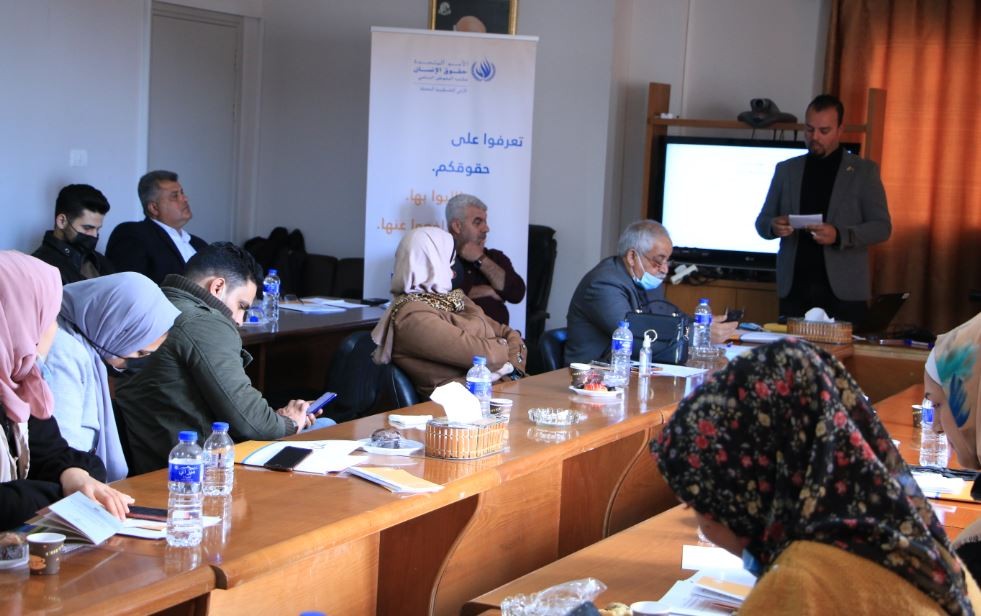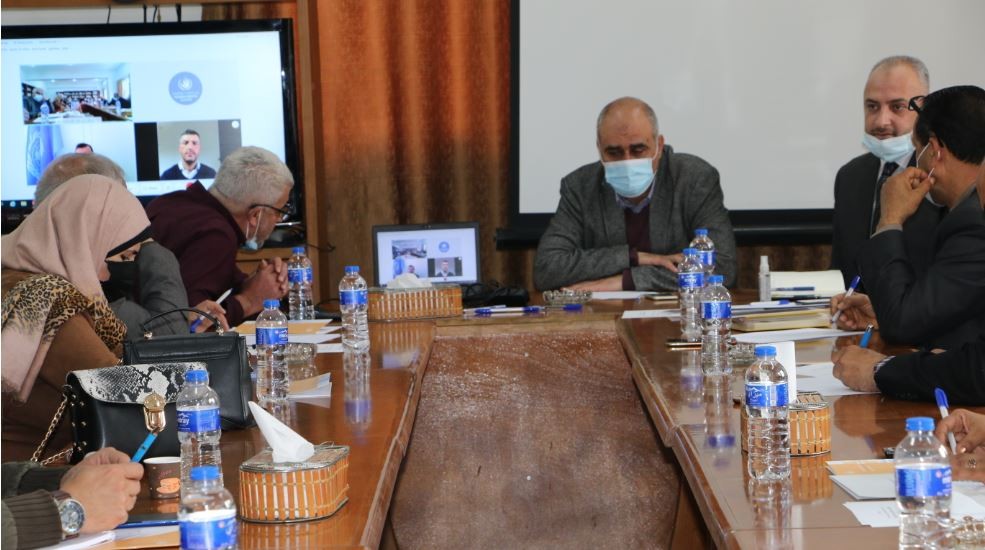The Palestinian NGOs Network (PNGO) and UN Office of the High Commissioner for Human Rights has organized a training workshop that dealt with Human Rights Standards in times of Elections. The workshop was also the product of the cooperation with the Central Elections Commission.
Around 30 employees from different sectors of NGOs attended the workshop with the aim to engage in explanations and discussions about the mechanisms of holding elections in Palestine and the role assigned to civil society organizations in conformity with by the General Elections Law, human rights principles, international covenants on political, civic, social and economic rights.
Amjad Al-Shawa, PNGO director, started the workshop by emphasizing the importance of elections as a tool for alternation of power, promote democracy in its comprehensive sense, as well as achieving national reconciliation.
The joint work of NGOs and the Central Elections Committee is a must, Al-Shawa stressed. The cooperation between these two vital bodies would entail educating citizens about the importance of participation, monitoring elections in their comprehensive sense, reviewing electoral lists and their electoral programs, ensuring the participation of women, and making polling places accessible for persons with disabilities.

For his part, Director of the Office of the High Commissioner for Human Rights, James Heenan, asserted that organizing this workshop comes as part of the continuous efforts to support and empower Palestinian civil society to adopt a human rights-based approach to their work.
The electoral process represents the right to political participation, freedom of opinion and expression, the principles of non-discrimination, and more specifically, non-intimidation, he added.
In the same context, Dr. Muhammad Abu al-Khair, Gaza Regional Central Elections Commission Director, spoke about voting and polling procedures to be followed when elections take place.
The steps included the criteria for monitoring, the expected role of observers, the rights of each of the voters and observers, and the different roles in polling centers, complaints and reporting violations.
Dr. Abu al-Khair also answered all the trainees' questions regarding the means allowing persons with disabilities to vote, human rights violation reports, and emergency preparations in the event of problems or threats at polling sites.
Furthermore, the second session of the training, moderated by Mr. Saber Al-Nairab, OHCHR Human Rights Officer, addressed international conventions with a focus on the International covenant on civil and political rights and articles on freedoms and elections, with a focus on articles 19, 21, 22 and 25.
Finally, the attendees received publications, and pamphlets related to the upcoming elections from both the Central Elections Commission and the Office of the High Commissioner for Human Rights.




